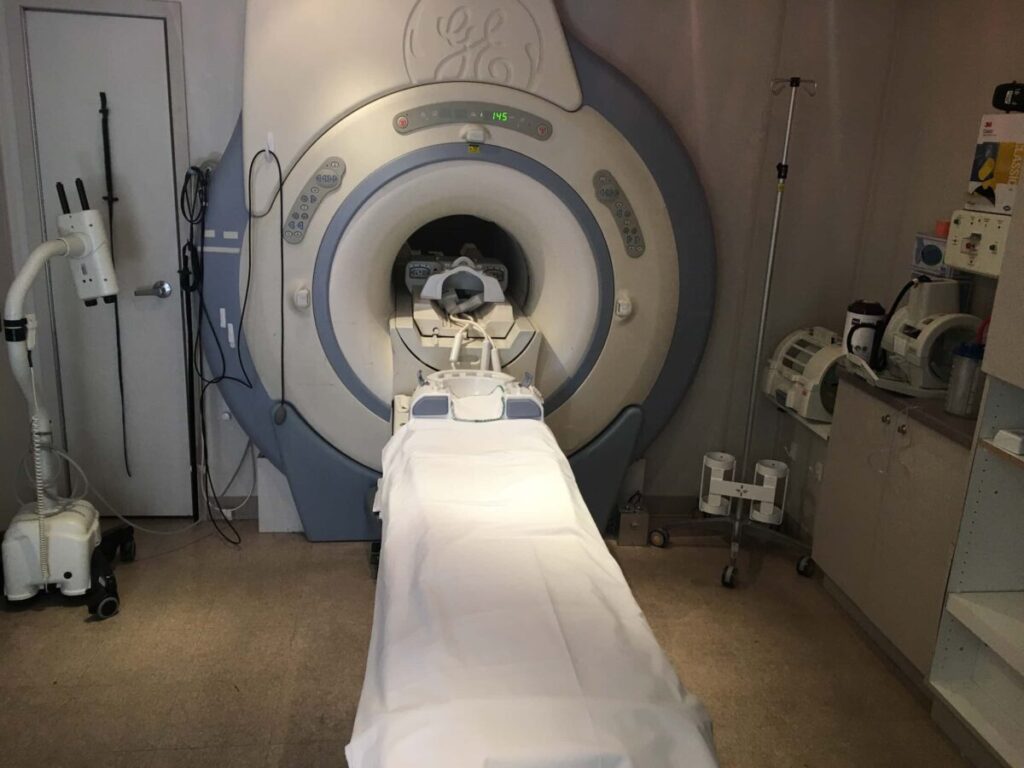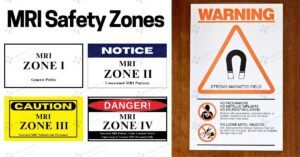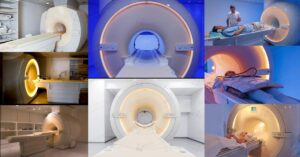Answering the Most Frequently Asked MRI Questions
The moment your doctor orders an MRI scan can be a stressful time that is often filled with more questions than answers. Medical Imaging Source is here to provide you with the most helpful radiology resources so you know exactly what to expect when undergoing an MRI exam.
This article provides the information you need so you can feel confident undergoing your MRI scan procedure. The questions below are the most frequently submitted questions by patients.
1. What does MRI scan stand for?
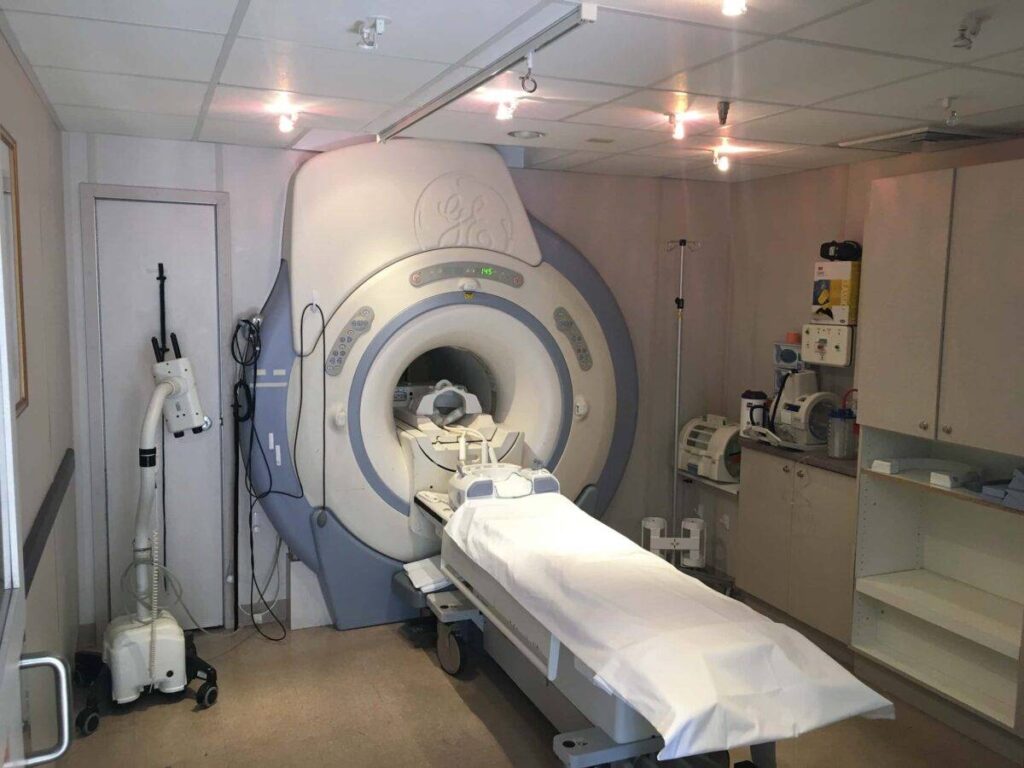
The term MRI scan refers to Magnetic Resonance Imaging (MRI). It is a method of obtaining diagnostic quality image of the anatomy using superconductive magnets (Magnetic), High-frequency RF waves (Resonance), and computed image reconstructions (Imaging) to obtain high definition images that can be viewed by a radiologist.
2. What Does an MRI Show?
MRI exams are ordered by a radiologist when detailed images of soft tissue, bone, organs, liquids inside the body or other anatomical structures are needed to diagnose a medical condition. An MRI scan can be used to detect anomalies in the anatomy such as tumors, cancer, trauma, infection, or developmental abnormalities.
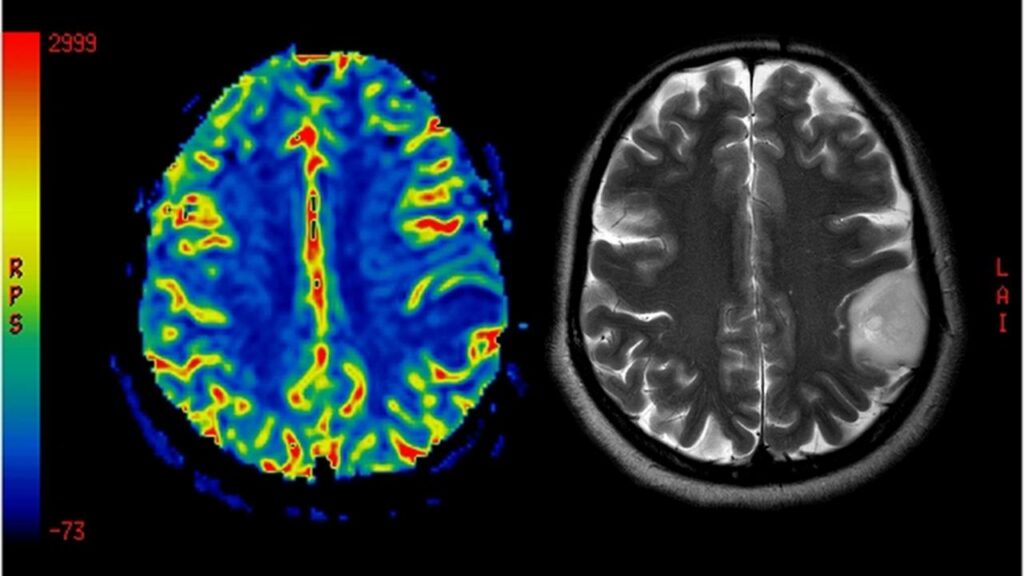
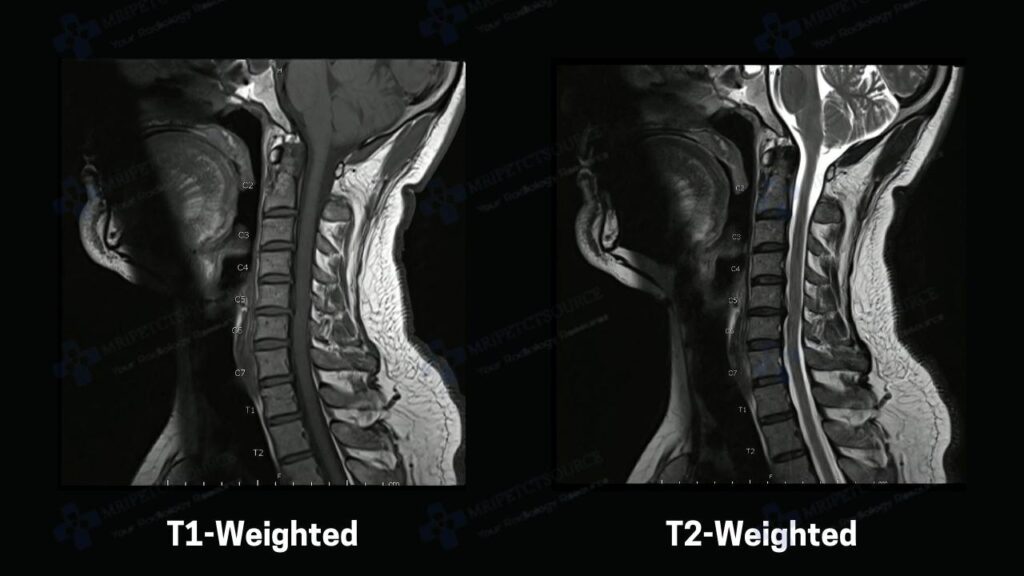
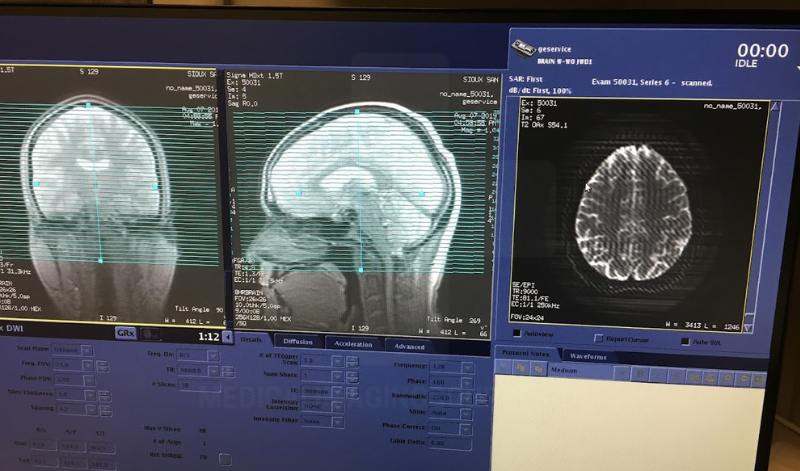
MRI scans of the brain can show trauma, stroke, multiple sclerosis, causes of headaches, and signs of dementia. New research with functional MRI (fMRI) can also detect the likelihood that someone will be able to quit smoking.
3. What Does an MRI Scan Sound Like?
Many sounds can be heard during an MRI scan. The first sound you will hear is the oscillating sound of the compressor that powers the cryogen recondenser that is always on. Once you enter the MRI bore and exam is ready to begin, you will hear multiple radio frequencies. The first minute of an the procedure consists of calibration scans that can sound like knocking, buzzing, and white noise. These sounds are all completely normal and are 100% safe. Once the calibration scans have completed, the patient will hear consistent radio frequencies for the duration of the sequence. A video is provided below for reference.
4. Will MRI Scan Show Cancer?
In oncology patients, an MRI scan can determine whether a tumor is cancerous and can also provide insight if cancer has metastasized into other regions of the body. A patient is typically injected with a contrast agent that highlights cancer in the anatomy.
5. Is an MRI Scan Painful?
No. An MRI scan is a non-invasive procedure that utilizes a magnet and radio frequencies to produce detailed images. The patient is provided with ear protection but will still be able to hear some of the various radio frequencies as the scan progresses.

Most discomfort during scans reported by patient occurs due to the various positions patients must lie in during the examination. Head MRI, Neck MRI, Shoulder MRI, Spine MRI, Knee MRI, Foot MRI procedures allow patients to lie on their backs. Extremity scans, as with Wrist MRI procedures, can have patients lying on their side or in “superman” position.
6. Is MRI Scan Scary?
It is not scary for most patients and does not have to be an intimidating experience. Most patients that have bad experiences during an MRI complain of anxiety or claustrophobia when having to enter the magnet. Many patients also have difficulty staying still during their exam due to injury or positioning during scan.
The majority of patients have no issues during their exam and some even find it to be the perfect time to take a short nap. Many imaging centers offer many patient comfort accessories such as headphones that let you listen to your favorite playlist during your exam, earplugs, pillows, blankets and much more.
7. Is MRI Safe?
Magnetic Resonance Imaging is among the safest methods of acquiring images of the anatomy. MRI scans are non-invasive procedures that uses a magnet and radio frequency to create images of the human body.
Patients are screened for metal objects before entering the magnet room. The superconductive magnet has no effect on any biological function of the human body.
Should an emergency occur, MRI systems are outfitted with multiple safety switches that allow the MRI technologist to immediately end the exam, remove patient from magnet bore and shut off power to system. As a last alternative, the tech can initiate a magnet quench, effectively removing all magnetic field from the magnet.
Conclusion
Magnetic resonance imaging exams are medical marvels that provide patients with safe, non-invasive diagnostic imaging images. Our goal is to provide you with the best resources so you are well-informed about your upcoming MRI procedure. Do you have any more questions regarding your imaging procedure? View the additional resources below learn more all about the MRI procedure.
Related Resources
Quick Navigation Links
Join the Medical Imaging Source Community!
Subscribe To Our Newsletter To Stay Up To Date With The Latest News, Exclusive Offers, And Giveaways!
The information provided by MRIPETCTSOURCE (“we,” “us,” or “our”) on https://www.medicalimagingsource.com (the “Site”) is for general informational purposes only. All information on the Site is provided in good faith, however we make no representation or warranty of any kind, express or implied, regarding the accuracy, adequacy, validity, reliability, availability, or completeness of any information on the Site. UNDER NO CIRCUMSTANCE SHALL WE HAVE ANY LABILITY TO YOU FOR ANY LOSS OR DAMAGE OF ANY KIND INCURRED AS A RESULT OF THE USE OF THE SITE OR RELIANCE ON ANY INFORMATION PROVIDED ON THE SITE. YOUR USE OF THE SITE AND YOUR RELIANCE ON ANY INFORMATION ON THE SITE IS SOLELY AT YOUR OWN RISK.

